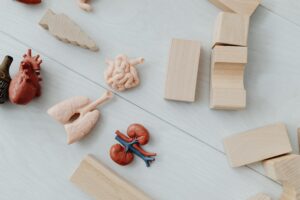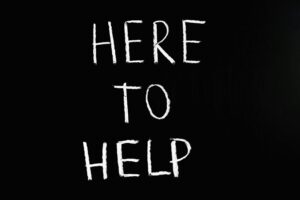Read time 7 minutes
This blog is another opportunity to feel grateful and thank you, dear Universe: You continue to bless me with recovery and overall health.
Introduction: From Diagnosis to a New Path

In 2016, my world changed dramatically when I was diagnosed with Isaacs’ Syndrome. It is a rare, puzzling, and often unseen neurological disorder.
Within a year, I was dealing with not only Isaacs’ Syndrome but also Lyme disease. It is a tough bacterial infection from tick bites. Then came Glaucoma. It is quietly threatening my eyesight, and then Membranous Glomerulonephritis. It is a rare kidney disorder with long-term uncertainties.
As the years went on, my medical vocabulary expanded to include common but relentless conditions:
Each diagnosis was like another curveball, leaving me isolated, confused, and sometimes overwhelmed.
What kept me afloat through recurring storms of symptoms, treatments, and emotions wasn’t just the doctors or medications??
It was the compassionate and practical support I found in online patient communities.
This blog isn’t just a recounting of medical struggles. I want to share how online communities, across forums, support groups, apps, and social networks, have helped. They became my anchor, my classroom, and often my therapy. Their stories, advice, and solidarity made every diagnosis less lonely. Every decision I made was a little clearer, and every hard day a bit more bearable.
Isaacs’ Syndrome: Navigating the Unknown

Being diagnosed with Isaacs’ Syndrome was, at first, bewildering. There are so few of us; some estimates report fewer than 40 cases in all of India, and only a few hundred worldwide.
Among many, this condition causes symptoms like muscle twitching, cramps, weakness, and sudden pain. There’s no permanent cure for most. Treatment is symptomatic. It often involves a combination of anti-epileptic drugs, immunotherapy, and considerable trial and error.
What I quickly realized is that so few doctors had even seen Isaacs’ Syndrome before. My appointments often became teaching sessions, with me as both student and reluctant subject.
The Power of Online Rarity

Here’s where the online world changed everything….
I turned to rare disease platforms, starting with Carenity (digital patient community). I connected via closed Facebook groups on Isaac’s Syndrome.
These spaces became lifelines. They were places to swap stories, ask about unusual side effects, and realize many new things,
I read posts about: overcoming misdiagnosis, trying alternative treatments, or even sharing dark humor. They brought comfort I didn’t know I needed.
Organizations like IORD and ORDI also provided practical resources, awareness campaigns, and advocacy.
Beyond information, these groups offered me what felt crucial: validation and hope. When symptoms worsened or doubts crept in, peers became my mentors.
Resources like IAMRARE by NORD and Raregivers helped reinforce that rare and complex illnesses are not meant to be tackled alone.
Lyme Disease: Battling the Invisible Enemy

A Common Struggle, Many Voices
After Isaacs’ testing pointed towards Lyme Disease.
While Lyme is common in some Western countries, it was quite controversial during my diagnosis in India.
The uncertainty, fluctuating symptoms, and endless antibiotics left me searching desperately for answers.
Online Lyme Support: From Confusion to Clarity
Platforms like LymeDisease.org and its National Lyme Support Groups became game-changers for me.
I found not only information-sharing on symptoms and treatment options but also other support. I could ask for referrals and find Lyme-literate doctors.
Here, people posted stories of recovery from setbacks, alternative and mainstream therapy tips. I even got to know how to handle skeptical family or doctors.
My most powerful moments?
Coming across posts about a new research advance and a diet that finally calmed joint pain.
Specialized groups like Generation Lyme, LymeLight Foundation, and MyLymeData allowed deeper dives. They talk about research, advocacy, and navigating life insurance and disability claims. Also, issues that are often ignored in standard patient brochures.
No one understands Lyme’s rollercoaster quite like the people living it. Online, I could be vulnerable about my fears.
Glaucoma: Facing the Fear of Loss

By the time I developed Glaucoma, I already felt like a professional patient. But nothing prepares you for eye disease.
Glaucoma, for me, is sneaky, painful, and irreversible in terms of lost vision. The anxiety of “am I doing enough?” was catered to through finding communities.
Finding Community, Facts, and Reassurance
The world of glaucoma support groups and forums quickly became my home base. The Glaucoma Research Foundation and various Facebook groups each offered unique things:
They provided practical tips for daily management. I got reminders about my eye drop technique, how to read visual field test reports, and navigating vision loss in daily life.
Even Scientific studies suggest that patients involved in online support groups experience better adherence to therapy, improved emotional well-being, and reduced anxiety. I can personally attest to that.
Membranous Glomerulonephritis: When the Kidneys Suffer

Membranous Glomerulonephritis (MGN) is a rare kidney disorder. It brings immune system chaos, protein loss in urine, swelling, and the threat of kidney failure.
It was bewildering as it came up in my Isaacs’ workup. Suddenly, I had to track not just neurologists but nephrologists as well. I had to learn about immunosuppressive therapies, monitor blood pressure, and diet.
Kidney Communities: Reassurance and Advocacy
National Kidney Foundation’s online communities and Kidney Wellness Hub were helpful. I got clues from the conversations based on managing side effects, navigating insurance, balancing nutrition, etc.
These communities also hosted webinars, provided reliable links to research. I found their new trials and patient-invites to peer mentor each other helpful.
I learned what to expect and, importantly, stopped blaming myself when the disease flared.
IBS, Diabetes, and Everyday Chronic Illness: Support

IBS: Sharing, Solutions, and Humor
IBS is incredibly common but often underplayed. Constipation, diarrhea, and bloating aren’t dinner-table topics, but they dominated my daily life.
IBS Patient Support Group and IBSGroup.org were essential social platforms.
Here’s why:
- Members share evidence-based information about diets, new medication trials, and practical coping tactics.
- It was great to read some humor. The meme threads and IBS horror stories told with laughter fostered connections.
Outcome? Relief from shame and confusion.
Diabetes: Never Alone in the Numbers Game

Diabetes demands endless self-management.
From tracking sugars, adjusting medication, dietary changes, and worrying about future complications. When it became part of my medical journey, I turned to Diabetes.co.uk and broader communities on Mumsnet.
The success stories, practical Q&A threads about what my fasting glucose was this morning, were incredibly valuable.
Key Tips:
- Low-carb recipes and responses to emotional burnout were invaluable
- It encouraged me to keep striving for better control
Table: Benefits of Online Communities for Rare and Chronic Disease Patients

| Benefit | Description | Example Platforms/Forums |
| Emotional Support | Reduce isolation, share stories, and offer encouragement | Inspire, Raregivers, 7 Cups, ADAA, Facebook Groups |
| Practical Advice | Real-life tips for symptom management, medications, and daily hacks | Forum Diabestes (UK), Carenity, IBS Group |
| Shared Experiences | Learn from others’ journeys, compare treatment paths, and normalize challenges | Raregivers, Isaacs’ Syndrome Carenity, Glaucoma Eyes FB Group |
| Reliable Information | Access curated research, clinical trial listings, and new therapies | Glaucoma Foundation, NORD, National Kidney Foundation |
| Advocacy & Awareness | Join campaigns, policy advocacy, research participation, and co-design studies | IAMRARE, MyLymeData, National Eczema Association |
| Access to Resources | Find physician directories, insurance tips, brochures, and credible blog posts | Medindia, HealthUnlocked, Kidney Wellness Hub |
My Takeaways: What Online Communities Have Taught Me

There’s no denying the challenge of living with rare and chronic diseases.
I’ve had days of frustration, fear, and even anger. Medical professionals provide skills and therapies. At the end of the day, it’s the collective wisdom and validation of my peers online that continually helped me keep moving forward. From Isaacs’ Syndrome to diabetes Q&A threads, every community offered a lifeline.
Here’s what I wish everyone could know:
- You are not alone, no matter how rare your diagnosis
- Virtual high-fives for small wins fuel my motivation in real life.
- There is no single “right” way to cope
- Don’t underestimate the power of sharing
- Healing Is Multifaceted
- Dark humor in threads lightens the unbearable weight of chronic symptoms.
Final Words: We Rise by Lifting Each Other

As I look back, marked by unexpected diagnoses and relentless challenges, I can say that online patient communities have been more than a supplement.
It’s been a quiet, consistent medicine without which I might have lost hope.
If you’re wrestling with your own health storm, I encourage you: join, listen, share, and connect.
DISCLAIMER
The views expressed above in this article are the author’s own and do not represent any kind of medical advice.


